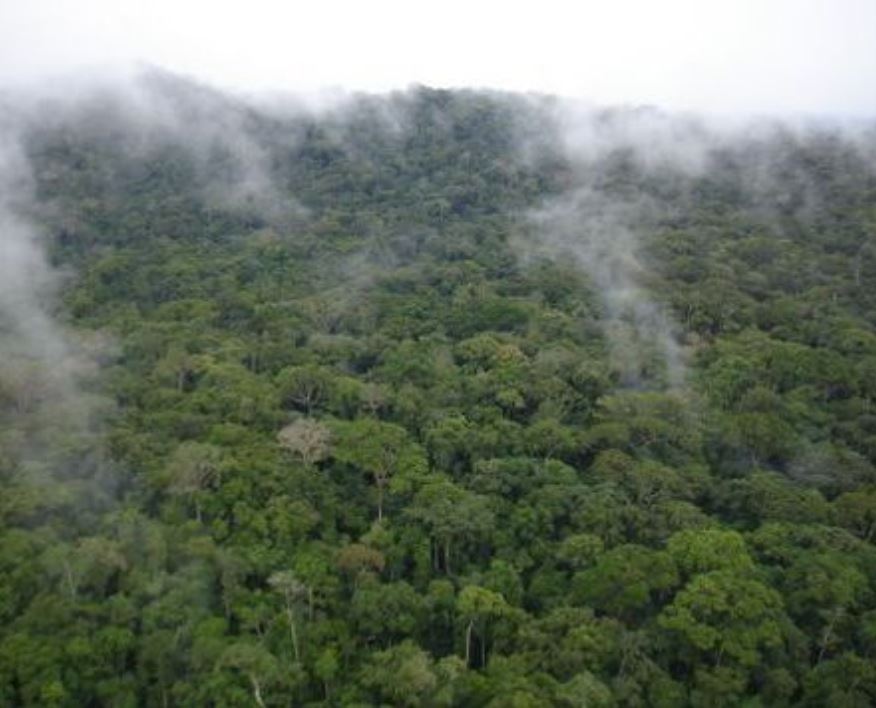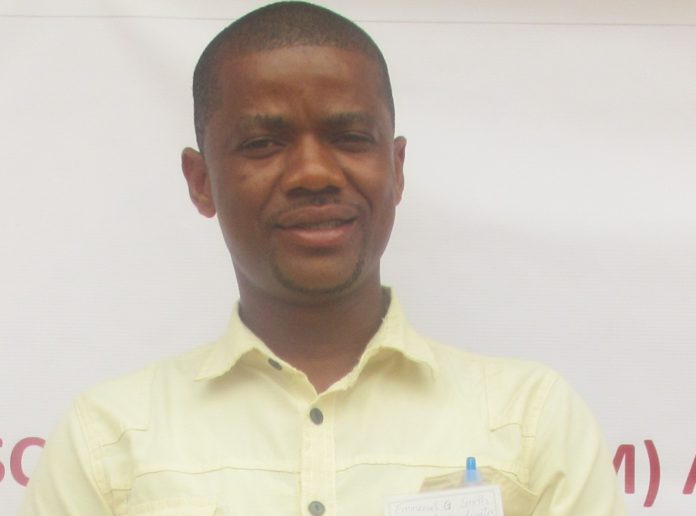In recognition of his work and effort to promote Sustainable Forest Management in Liberia through conservation activities, a staff of Society for the Conservation of Nature(SCNL) Emmanuel G. Smith has received this year’s CEPF “Biodiversity Hotspot heroes” award of the Upper Guinea Forest.
Mr. Smith was named by the Critical Ecosystem Partnership Fund (CEPF) recently for ensuring the protection of the country’s biodiversity and ecosystems through conservation activities..
On May 22, 2020 on the International Day for Biological Diversity, the Critical Ecosystem Partnership Fund (CEPF) announced Emmanuel G. Smith and nine other conservationists from around the world as winners of this year “Hotspot Heroes” for their efforts to protect the world’s biodiversity hotspots.
According to a dispatch from CEPF headquarters in Arlington, Virginia, USA, the honorees were chosen from the hundreds of civil society organizations that have received grants from CEPF in the 10 global biodiversity hotspots where the fund is currently active and administer.
CEPF is recognizing these personalities as part of the celebration of its 20th anniversary.
The fund empowers nongovernmental organizations, indigenous groups, universities and private enterprises to protect the world’s biodiversity hotspots, the world’s most biologically diverse yet threatened terrestrial regions and help communities thrive.
CEPF does this through grants and technical support for conservation, organizational strengthening and sustainable development.
The Hotspot Heroes are working for nongovernmental organizations that are making outstanding contributions to the conservation of forest hotspots endangered spices.
The dispatch noted that the winners of this year award exemplify the kinds of dedicated, dynamic people who are working to ensure that intact ecosystems can continue to sustain flora and fauna and provide clean air, fresh water, healthy soils, sustainable livelihoods, resilience to climate change and much more.
Mr. Smith serves as Local Community Empowerment Officer at SCNL and serves as the project coordinator of the project titled “Communities as Environmental Stewards of the Largest Guinea Rainforest Block” implemented by the Society for the Conservation of Nature of Liberia (SCNL), the country’s oldest conservation organization.
How did it happen?
In this role, he coordinates efforts to support 15 communities in establishing two community forests (Normon and Tonglay Forests), linking Gola Forest National Park in Liberia, the proposed Foya Nature Reserve, and the Gola Rainforest National Park in Sierra Leone. 
An arial view of the Gola Forest in Liberia
Together these form the Greater Gola Landscape which represents the largest single block of remaining Upper Guinean Forests. These forests are part of the Guinean Forests of West Africa Biodiversity Hotspot, which extends across the southern part of West Africa, from Guinea to western Cameroon, covering all or part of 11 countries.
The community forests serve as a crucial corridor for wildlife, including some 60 threatened species, the Critically Endangered western chimpanzee (Pan troglodytes verus) and Endangered pygmy hippopotamus (Choeropsis liberiensis) among them.
SCNL’s efforts involve introducing rainforest-friendly and climate-smart income-generation activities to support local communities, such as beekeeping and cocoa cultivation. H
Seventy-two percent of households have benefited from at least one of the project’s livelihood programs.
“Mr. Smith’s role also requires outstanding relationships with the communities he’s working with as well as the many technical partners.
He has dealt with a range of issues ranging from commercial bushmeat and beekeeping to loan schemes and literacy,” said Peggy Poncelet, CEPF grant director for the Upper Guinean Forests of West Africa Biodiversity Hotspot.
The communities SCNL is working with recently demonstrated their commitment to conserving their natural resources when they turned down an offer from a logging company.
“The Hotspot Heroes represent the many tenacious, committed conservationists who are taking action every day to ensure the future of the biodiversity hotspots and the people who depend on these vital ecosystems,” said CEPF Executive Director Olivier Langrand.
CEPF is a joint initiative of l’Agence Française de Développement, Conservation International, the European Union, the Global Environment Facility, the Government of Japan and the World Bank.






















